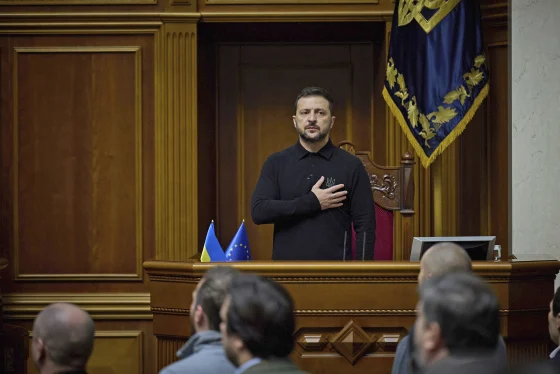Ukrainian President Volodymyr Zelenskiy presented his much-anticipated “victory plan” on Wednesday, urging Kyiv’s allies to take decisive steps to support Ukraine in its fight against Russia. Addressing parliament, Zelenskiy outlined a five-point strategy aimed at ending the war by next year, emphasizing the need for international support to shift the balance of power and force Russia into negotiations.
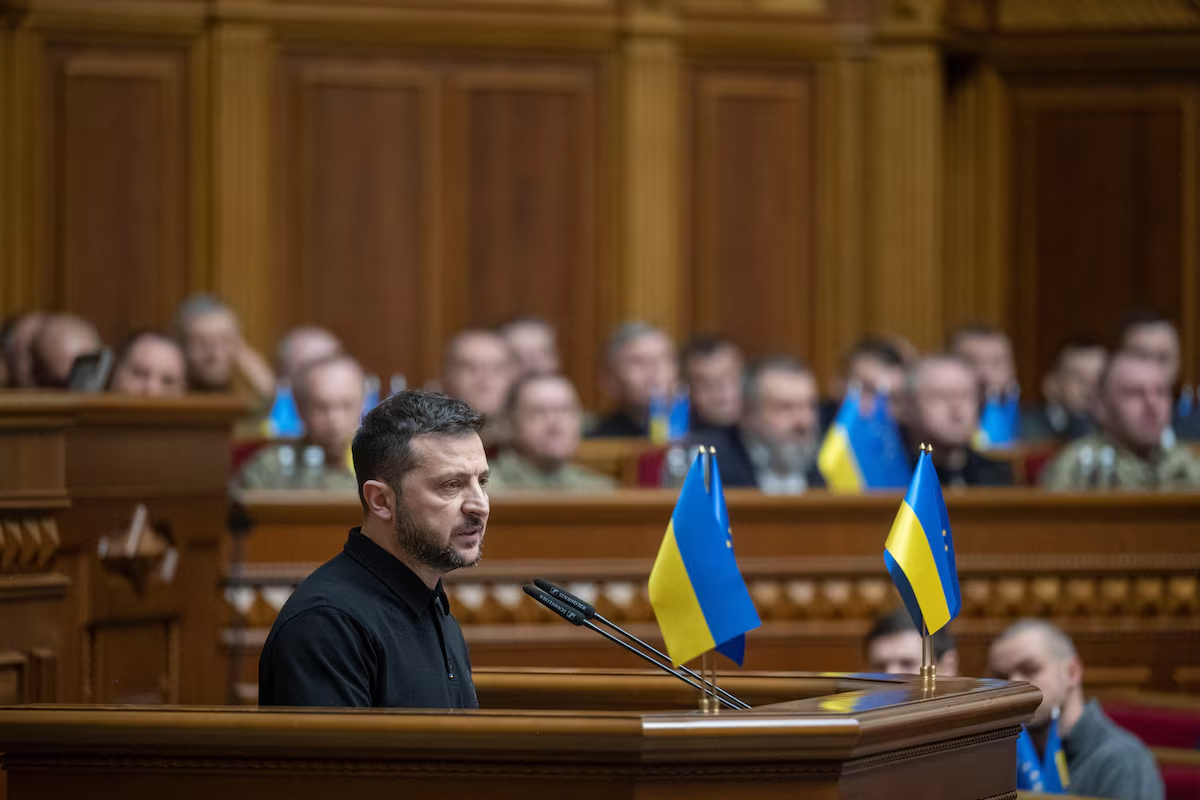
The plan comes at a critical moment for Ukraine, as Russian forces continue to advance in the east and a harsh winter of power cuts looms. Zelenskiy stressed that his plan requires swift action from Ukraine’s Western allies, including an unconditional invitation for Ukraine to join NATO and increased weapons support. In return, he offered Western nations a stake in Ukraine’s natural resources and highlighted the potential for Ukrainian troops to bolster NATO’s security, potentially replacing some U.S. forces in Europe.
“Together with our partners, we must change the circumstances so that the war ends. Regardless of what Putin wants, we must force Russia into peace,” Zelenskiy told lawmakers and officials. He underscored that Ukraine remains open to diplomacy, but only “honest diplomacy,” suggesting that some of Kyiv’s allies may have different views on the endgame of the war.
Key Points of Zelenskiy’s Plan
Zelenskiy’s “victory plan” is designed to build a stronger defense against Russian aggression and ensure Ukraine’s future security. The plan includes the establishment of a “comprehensive non-nuclear strategic deterrence package” within Ukraine, which would act as a safeguard against future threats from Russia. While Zelenskiy did not provide specific details about this deterrence package, he hinted at a classified addendum to the plan that he could not disclose publicly.
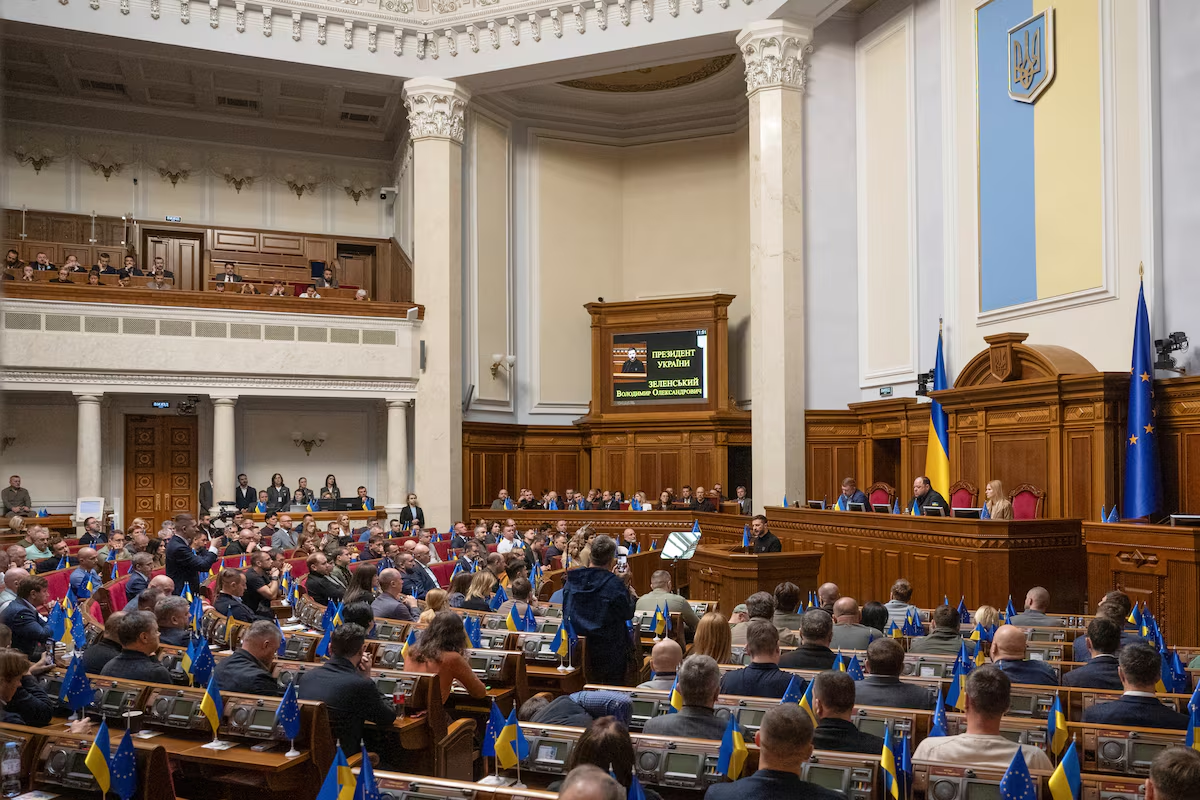
Another key component of the plan involves Western investment in Ukraine’s natural mineral resources, which Zelenskiy said would not only aid Ukraine’s post-war reconstruction but also protect these valuable assets from potential Russian attacks.
Zelenskiy’s proposal is a significant test of the political will of Kyiv’s key allies, many of whom have provided billions of dollars in military aid to Ukraine but are wary of further escalation. NATO, while committed to Ukraine’s eventual membership, has not yet extended a formal invitation. The alliance’s new chief, Mark Rutte, called Zelenskiy’s plan a “strong signal” but noted that he could not fully endorse it as it stands.
Russian Reaction and Strategic Implications
The Kremlin responded cautiously to Zelenskiy’s plan, with a spokesperson saying it was “too early to comment” but calling on Kyiv to “sober up” and recognize the futility of its current policies. Zelenskiy, in his speech, also mentioned that Russia’s war effort has been bolstered by arms transfers and personnel support from North Korea, a significant development in the conflict.

Despite these challenges, Ukraine’s military continues to face an uphill battle against Russia’s numerical and logistical advantages. In the east, Russian forces have been slowly gaining ground, capturing village after village and threatening critical supply routes. The logistics hub of Pokrovsk is now under serious threat as Russian troops press their offensive.
U.S. Uncertainty and Global Concerns
Adding to the uncertainty is the looming change of power in the United States, with the outcome of the 2024 presidential election potentially having a significant impact on Ukraine’s future. Former President Donald Trump, who remains a leading candidate, has been vocal about his skepticism of continued aid to Ukraine and has pledged to end the war quickly if re-elected. Kyiv’s allies fear that such a resolution could involve major concessions to Russia.
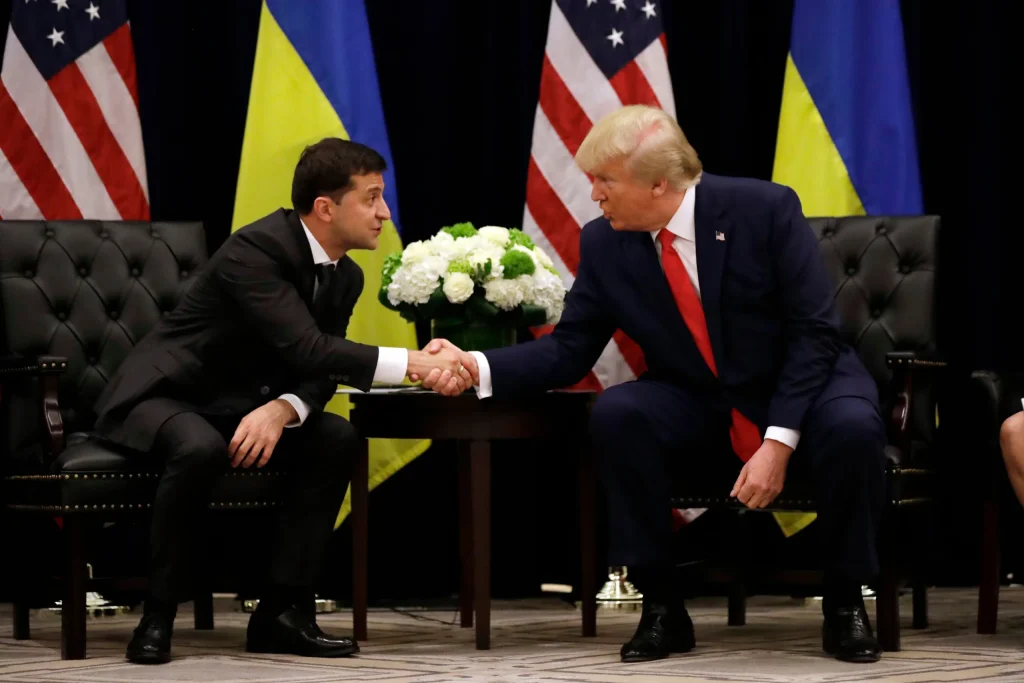
Zelenskiy stressed the importance of maintaining unity among Ukraine’s international supporters, reiterating his call for longer-range missile systems and advanced air defenses. He also referenced Ukraine’s recent military operations in Russia’s Kursk region as a demonstration of the need for continued offensive capabilities.
“If we start moving on this victory plan now, we may be able to end the war by next year at the latest,” Zelenskiy asserted. He is scheduled to present his plan to European Union leaders in Brussels on Thursday, having already discussed it with U.S. President Joe Biden and other Western leaders during a recent diplomatic tour.
Mixed Reactions and Domestic Challenges
Zelenskiy’s speech received a mixed reception within Ukraine. While some lawmakers applauded his determination, others expressed skepticism about the feasibility of the plan. Oleksii Honcharenko, a member of parliament, described the plan as “very unrealistic,” arguing that too much of the responsibility was placed on Ukraine’s partners without sufficient demands on Ukraine itself.
However, Roman Lozynskyi, a lawmaker from Zelenskiy’s party, pointed out that many of Zelenskiy’s past requests—such as for F-16 fighter jets and long-range missiles—had initially seemed unrealistic but eventually became a reality.
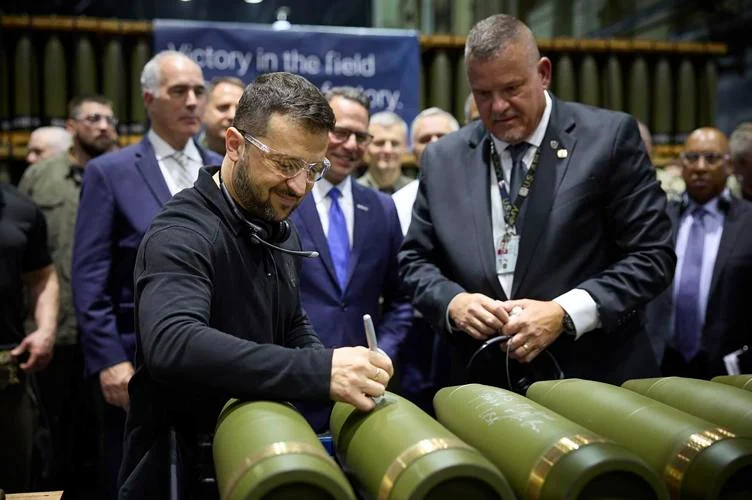
Zelenskiy’s message was clear: Ukraine cannot afford to lose hope. He urged the Ukrainian public to remain united, despite the immense challenges ahead, and promised that the war can be ended if the country and its allies work together. “We achieved and are achieving results in battles thanks to our unity. Therefore, please do not lose unity,” he told the nation.
As the war grinds on and the political landscape continues to shift, Zelenskiy’s victory plan is likely to become a focal point of debate both in Ukraine and among its international allies. The coming months will determine whether this bold strategy can gain the traction needed to turn the tide in Ukraine’s favor.

